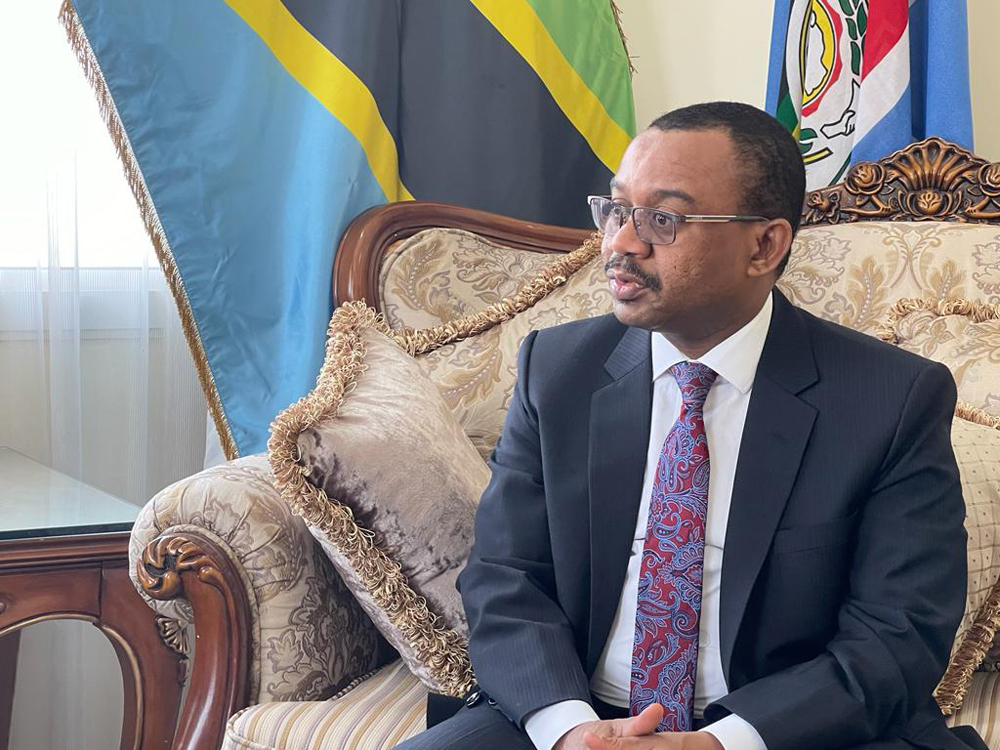Photo Courtesy The Peninsula
Ambassador of the United Republic of Tanzania, H E Dr. Mahadhi Juma Maalim, has revealed plans to teach Kiswahili (Swahili) to non-speakers in Qatar as the United Nations Educational, Scientific and Cultural Organization (UNESCO) and Swahili-speaking countries mark the first World Kiswahili Language Day today. The Tanzanian community in Doha recently celebrated the day.
“We have considered language schools that already teach Arabic, French and others, and they have shown interest. We have some people from our community whose kids can’t speak Swahili. So they would probably be the first clients keen to have their children communicate in Swahili,” Maalim told the media.
He added that some embassy staff and volunteer community members would teach the language using an expert curriculum from Tanzania.
“We have the embassy staff, and we already have talked with some volunteers from the community; some of them have a teaching background. We’ll use a curriculum and books from the experts back home. We’re just doing it from the resources we have here,” he added.
Maalim stressed that teaching the language in Qatar and other parts of the world would encourage language learners to explore language’s origin to learn and make sure that they perfect the language.
“So that’s by itself, I mean is encouraging cultural understanding and exchange,” he added.
Last year, the 41st session of the General Conference of UNESCO adopted resolution 41 C/61 which recognised the Kiswahili language’s role in promoting cultural diversity. Hence, the resolution proclaimed July 7 as World Kiswahili Language Day.
Kiswahili is one of the most widely used languages of the African family and is among the ten most commonly spoken languages in the world, with more than 200 million speakers. Originally from Tanzania and Kenya, the language is one of the lingua franca in many countries within East, Central and Southern Africa like Uganda, Rwanda, South Africa, and the Middle East (Yemen, Oman). It is also taught across top universities and colleges globally.
Maalim said the UN recognition for Kiswahili Day is a testament to Tanzania’s efforts, especially as Kiswahili is the first African language to the recognised in such a manner by the UN, adding that this would help preserve the language.
“Getting this recognition at the UN level is important because the language is being taught and studied in different universities worldwide. I think it gives it a better status and pushes probably for other people to continue to study and teach it.
“We would also like more media houses to start Kiswahili services. Some international media organisations, including BBC, Voice of America, and Radio Cairo, already have that. However, suppose Al Jazeera can have a Swahili service. In that case, it will help promote the language because those people who cannot get their information through English or Arabic can get it in Swahili.”
The envoy revealed that South Africa had already started to teach Kiswahili. As part of the celebration, Tanzania and South Africa will sign an agreement to supply experts to teach Swahili in South African schools.
“Botswana also had adopted that. I think Namibia they are in the process. So that promotes Kiswahili, and we think other countries will,” Maalim said.
According to the envoy, July 7 was picked in recognition of the Tanganyika National Union (TANU) in 1954. The party struggled for Tanzania’s sovereignty from British colonial rule and was led by independence icon Julius Nyerere. By Ayeni Olusegun, The Peninsula






